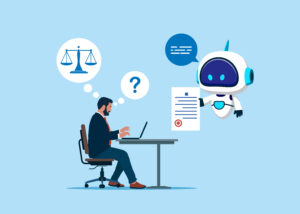Management Assistance Program
Don’t Let AI Override Your Judgment
By Julie Bays, OBA Management Assistance Program Director
You may have seen the recent buzz about a local defense brief that reportedly included “hallucinated” cases. This incident highlights that, although generative AI can assist lawyers with drafting and research, it cannot replace professional judgment or ethical responsibility.
Under the Oklahoma Rules of Professional Conduct, Rule 1.1, lawyers are required to maintain competence in their legal practice. Specifically, Comment 6 to Rule 1.1 highlights the need for attorneys to understand the benefits and risks associated with relevant technology, including AI. This means lawyers must be familiar not only with how these tools operate, but also with their limitations and the potential for errors, such as generating fictitious or misleading case citations. Even trusted legal research platforms like Lexis, CoCounsel, or Vincent can sometimes produce hallucinated results or inaccurate quotations. Ultimately, it is the lawyer’s responsibility to identify and correct these errors before anything is filed with the court. Think of it this way: AI is a brilliant but sometimes unreliable intern. You wouldn’t let an intern with a known penchant for making up facts file a brief without a thorough review, would you?
operate, but also with their limitations and the potential for errors, such as generating fictitious or misleading case citations. Even trusted legal research platforms like Lexis, CoCounsel, or Vincent can sometimes produce hallucinated results or inaccurate quotations. Ultimately, it is the lawyer’s responsibility to identify and correct these errors before anything is filed with the court. Think of it this way: AI is a brilliant but sometimes unreliable intern. You wouldn’t let an intern with a known penchant for making up facts file a brief without a thorough review, would you?
For solo practitioners and small firm lawyers, AI can be a powerful assistant, streamlining research and drafting tasks. However, the key to leveraging these benefits safely is pairing AI-generated output with diligent human oversight. The best practice is clear: always treat the output from AI tools as a preliminary draft, not as a finished product ready for submission. Double-check all authorities, verify the facts, and ensure that every document meets the highest professional standards before it leaves your desk. Let’s face it: you don’t want to be in court explaining that “Imaginary v. MadeUp” is, in fact, an AI-generated fantasy and not binding precedent!
